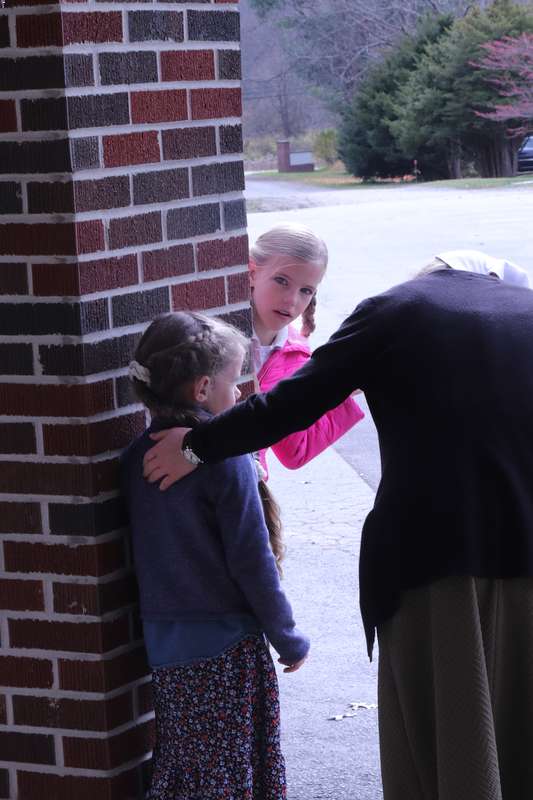Relational Practices for Task-Oriented Teachers

I find personality tests intriguing. Enneagram, Myers-Briggs, DISC, and other frameworks for explaining the way human beings operate have helped me to understand myself and other people in new ways. I had studied many of these in various seasons of my life, but one aspect of personality that I have found particularly helpful has only come to my attention in recent years: the difference between people-oriented and task-oriented individuals.
People-oriented people are very relational. They always have time to sit down and talk; the work can wait. They love people by taking time for them, talking with them, and offering a listening ear. Task-oriented people, on the other hand, are the diligent workers. They get the job done. They love people by doing things for them and by producing quality workmanship.
While both sides have strengths, the weakness of either extreme is obvious. Task-oriented people tend to emphasize work at the expense of relationships. People-oriented people fall into the ditch on the other side. They are so busy interacting with people that they neglect necessary work. Recognizing our own natural tendency to lean toward one side or the other can help us to work on becoming more balanced. Perhaps even more than some other professions, school teaching requires a delicate balance of both relational skills and efficient work skills.
As a very task-oriented person, I write this especially for other task-oriented teachers, because we need to be more intentional in taking time for relationships with our students. We are good at accomplishing tasks. We plan and execute great lessons and projects, we get those stacks of papers graded, and we sweep that messy floor. But sometimes in our zeal to do all the things and to give our students a quality education, we miss their hearts.
While “trying to be more relational” can seem like a nebulous goal, it is possible to take small practical steps in that direction. Here are a few things I have done:
Greet your students at the door in the morning. This is something I wish I would have done earlier in my teaching career. It is meaningful to look each child in the eye and to greet them by name as they enter the classroom. They have your full attention. You are not at your desk doing last-minute grading or lesson preparation. Last year I received a note from one of my students from the previous year, and among other things she wrote, “I liked how you smiled and said ‘Good morning’ to me every day when I walked in the door.” This child is extremely relational, and it warmed my heart to know that I had connected with her in a way that she remembered and was able to articulate so clearly. Allow class time for students to tell their stories. It can feel like a waste of time to allow precious minutes for students to tell about their new puppies, their trip to visit cousins, or their latest inventions. But this can be a great time of connection with students. I’m learning to quiet the little voice in my head that says, “But we have so much to do!” and to let my students talk about the things that are important to them. We need to have limits for this, of course. But especially after a weekend or other break from school, I take five to ten minutes in the morning just to let students talk about the things they did or whatever is on their minds. Write notes to your students. This is a wonderful relational tool for us task-oriented people, because it is a job we can cross off a list. At the same time, it is a meaningful way to connect with students. I keep a handy stash of little cards in my desk for this purpose, and it takes only a minute or two to write a short note praising a student for something positive I noticed, or even just saying, “I love having you in my class. Have a great day!” Recently the mother of one of my students told me how much it meant to her daughter when she got a note from me. I was reminded that little things like this can have a big impact. Resist the urge to be constantly at work. At our school, we have an unstructured morning break and lunch break. Students are free to play in the gym or on the playground when they finish eating. Not all of us teachers need to be out there supervising, and technically I could use this time to gather supplies from the art closet, run to the office to make copies, review the next class period’s lesson plans, etc. To be honest, sometimes I do those things. But I am also learning to spend more time with my students and to refocus my brain from its natural task-oriented mindset. Be interested in the things that interest your students. I have no interest at all in football or hunting, but my students don’t have to know that. I can still smile and nod at their stories, ask questions, and encourage them to pursue their interests. I can learn the names of their pets and ask about them sometimes.By God’s grace, we can continually learn new habits of connection, even if we are not naturally people-oriented.
Related Items
Leave a Reply
Feedback